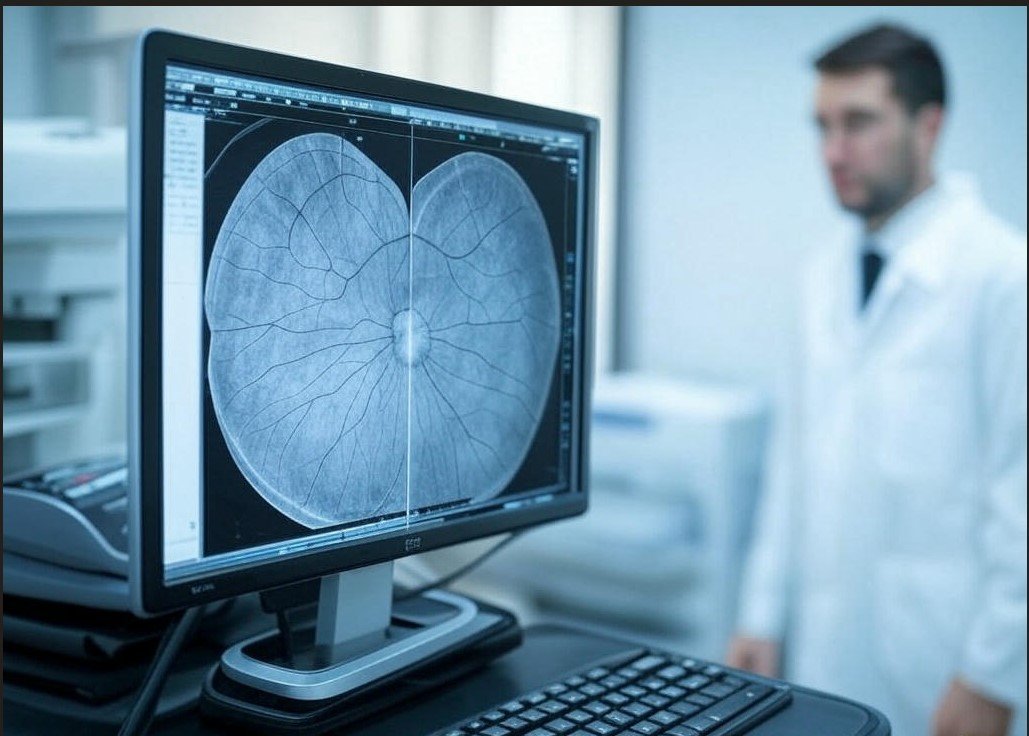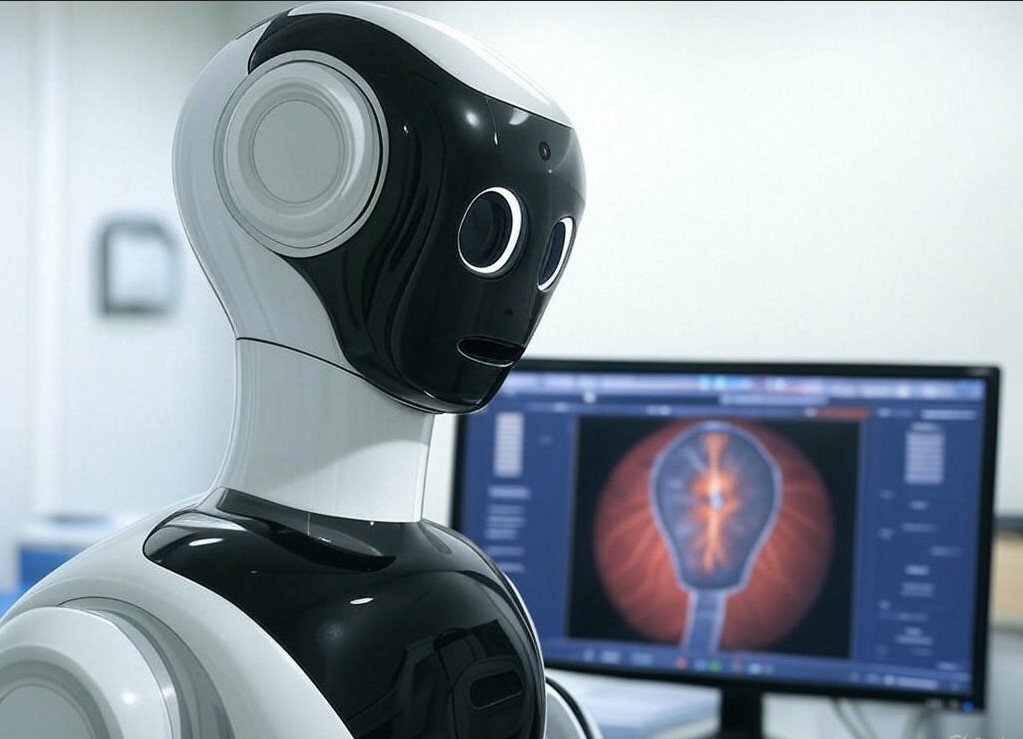Artificial Intelligence (AI) has transformed industries worldwide, and the healthcare sector is no exception. From improving diagnostics to personalizing patient care, AI is seamlessly integrating into daily healthcare operations. Its ability to analyze vast amounts of data, detect patterns, and provide actionable insights is revolutionizing how medical professionals work and how patients receive care. This blog explores the daily applications of AI in healthcare, supported by real-world examples, case studies, and tools that are driving this change.
How AI is Used Daily in Healthcare
AI’s integration into healthcare is not a distant future concept—it’s happening now. Doctors, nurses, and administrators use AI tools daily to enhance efficiency, accuracy, and patient outcomes. Here are some key areas where AI makes a difference:
- Diagnostics and Early Detection
AI-powered tools analyze medical images, lab results, and patient records to identify diseases faster and with greater precision than traditional methods.
- Example: AI algorithms can detect lung cancer in CT scans or diabetic retinopathy in eye images, often spotting subtle signs missed by the human eye.
- Personalized Treatment Plans
By analyzing patient data—genetics, lifestyle, and medical history—AI helps doctors tailor treatments to individual needs.
- Example: Oncologists use AI to recommend chemotherapy regimens based on a patient’s unique tumor profile.
- Administrative Efficiency
AI automates repetitive tasks like scheduling, billing, and patient record management, freeing up healthcare staff to focus on patient care.
- Example: Chatbots handle appointment bookings and answer routine patient queries.
- Remote Monitoring and Telemedicine
Wearable devices and AI apps track patient vitals in real-time, alerting doctors to anomalies.
- Example: Smartwatches with AI detect irregular heartbeats and notify users to seek medical attention.
- Drug Discovery and Development
AI accelerates pharmaceutical research by predicting how drugs interact with targets in the body.
- Example: AI models identify potential compounds for diseases like Alzheimer’s, slashing research time.
Case Studies: AI in Action
To understand AI’s real-world impact, let’s dive into two case studies showcasing its daily use in healthcare.
Case Study 1: Google’s DeepMind and Moorfields Eye Hospital
- Problem: Diabetic retinopathy, a leading cause of blindness, requires early detection, but manual screening of eye scans is time-consuming.
- Solution: Google’s DeepMind developed an AI system to analyze retinal scans and detect signs of retinopathy with 94% accuracy—matching or exceeding human experts.
- Outcome: Implemented at Moorfields Eye Hospital in the UK, this tool is used daily to screen thousands of patients, reducing diagnosis time from days to minutes and enabling earlier treatment.
- AI Tool Used: DeepMind’s machine learning algorithms.

Case Study 2: IBM Watson Health and Cancer Treatment
- Problem: Oncologists need to sift through mountains of research and patient data to devise effective cancer treatments.
- Solution: IBM Watson Health’s AI platform processes medical literature, clinical trial data, and patient records to recommend personalized treatment plans.
- Outcome: At Memorial Sloan Kettering Cancer Center, Watson is used daily to assist doctors in crafting therapies for breast and lung cancer patients, improving survival rates by aligning treatments with the latest evidence.
- AI Tool Used: IBM Watson for Oncology.
Popular AI Tools in Daily Healthcare Use
Several AI tools have become staples in healthcare settings. Here’s a look at some widely adopted ones:
- Aidoc
- Function: Analyzes medical imaging (e.g., X-rays, MRIs) to flag urgent conditions like brain hemorrhages.
- Daily Use: Radiologists use Aidoc to prioritize critical cases, ensuring faster interventions.
- PathAI
- Function: Assists pathologists in diagnosing diseases like cancer from tissue samples.
- Daily Use: Labs integrate PathAI to improve diagnostic accuracy and reduce turnaround time.
- Babylon Health
- Function: A chatbot that assesses symptoms and provides health advice or triages patients to doctors.
- Daily Use: Patients consult Babylon for minor ailments, easing the burden on clinics.
- Tempus
- Function: Analyzes genomic data to guide precision medicine.
- Daily Use: Oncologists rely on Tempus to personalize cancer therapies based on DNA sequencing.
- Zebra Medical Vision
- Function: Detects anomalies in medical scans, from fractures to tumors.
- Daily Use: Emergency rooms use Zebra’s AI to speed up diagnosis during high-pressure situations.
Benefits and Challenges of AI in Healthcare
Benefits:
- Faster, more accurate diagnoses.
- Reduced administrative workload.
- Improved patient outcomes through personalized care.
- Cost savings for healthcare systems.
Challenges:
- Data privacy concerns with patient records.
- High implementation costs for smaller facilities.
- Need for continuous training to keep AI models updated.

The Future of AI in Healthcare
As AI technology evolves, its daily use in healthcare will only expand. Predictive analytics could soon warn of outbreaks, virtual nursing assistants might monitor patients 24/7, and AI-driven robotics could assist in surgeries. With ongoing advancements, the synergy between human expertise and AI will redefine medical care.
Conclusion
AI is no longer a novelty in healthcare—it’s a daily necessity. From spotting diseases in scans to streamlining hospital workflows, its applications are vast and growing. Tools like Aidoc, PathAI, and IBM Watson, alongside success stories from DeepMind and Memorial Sloan Kettering, highlight AI’s transformative power. As healthcare providers embrace these innovations, patients stand to benefit from faster, more precise, and accessible care.
For healthcare professionals and organizations looking to stay ahead, adopting AI isn’t just an option—it’s the future. What’s your take on AI’s role in healthcare? Let us know in the comments!

